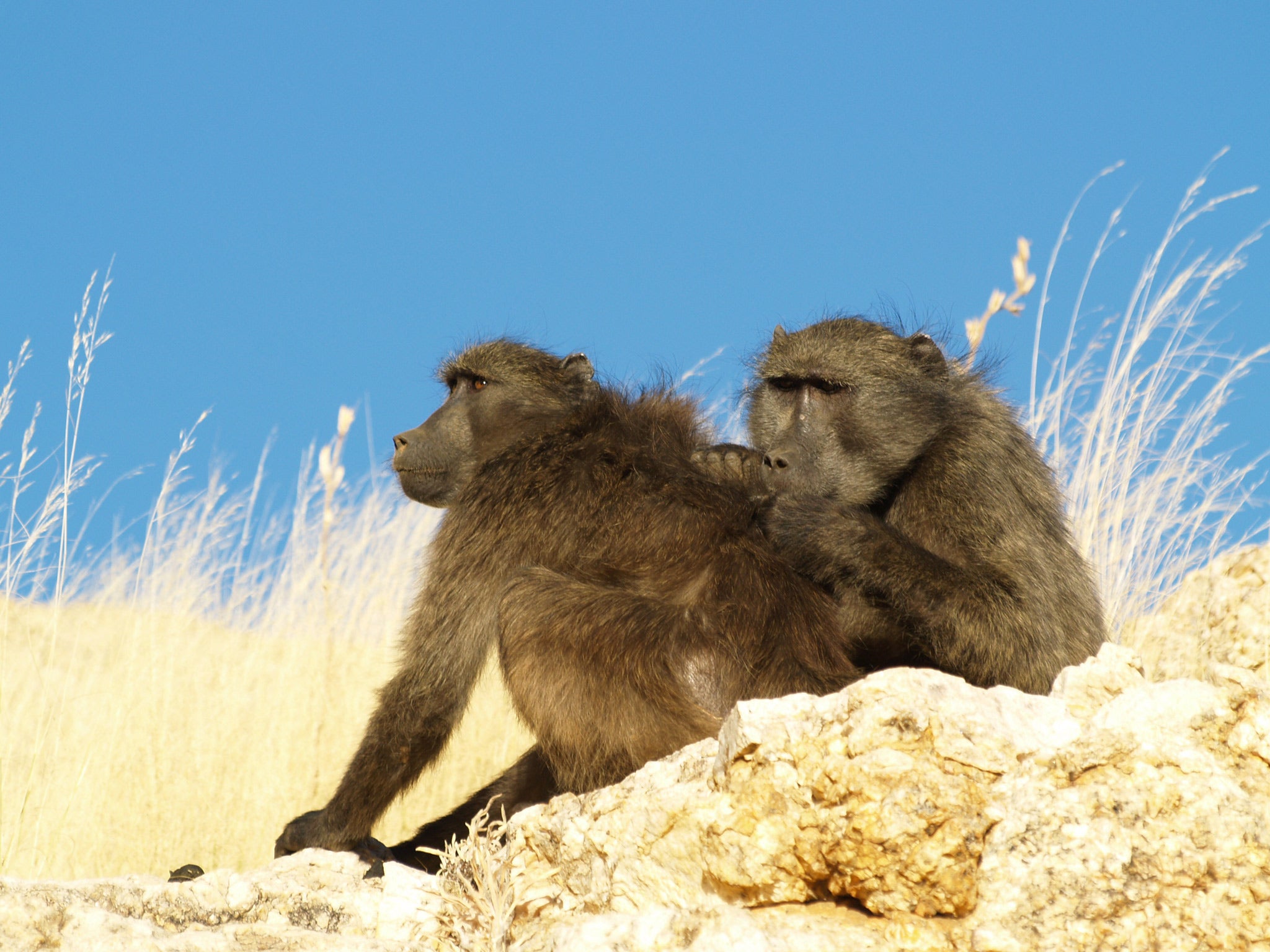Baboons keep their grouchy friends happy in the morning so they'll be nice the rest of the day
Animals groom other members of their group so that they'll be treated favourably during activities later on, like eating

Baboons groom other, more powerful members of their groups early in the morning so that they will be favoured through the rest of the day, a study has found.
The animals have long been known to groom each other for ulterior motives. Smaller baboons groom larger ones, swapping the hygiene and stress relief that grooming can bring for access to infants, mating opportunities and better food.
But researchers changed the pattern of some baboons’ day to see how it would change their scheduling, and found that animals tend to groom others earlier on in the day so that they will be favoured in afternoon activities. They showed that subordinate animals changed how they groomed larger ones to ensure that they were treated well at food patches.
“Subordinates were more likely to groom the more dominant individuals earlier in the day, when most foraging activities still lay ahead and the need for tolerance at shared feeding sites was greatest,” said biologist Claudia Sick, from the University of Copenhagen, which ran the study in conjunction with the Zoological Society of London.
Scientists knew that strong social bonds can develop between animals over several years that live in groups and can make an important contribution to their fitness. But recent studies have also shown that those relationships can build over weeks and months, and the new study highlights how such relationships can build up over even shorter periods.
Join our commenting forum
Join thought-provoking conversations, follow other Independent readers and see their replies
Comments
Bookmark popover
Removed from bookmarks